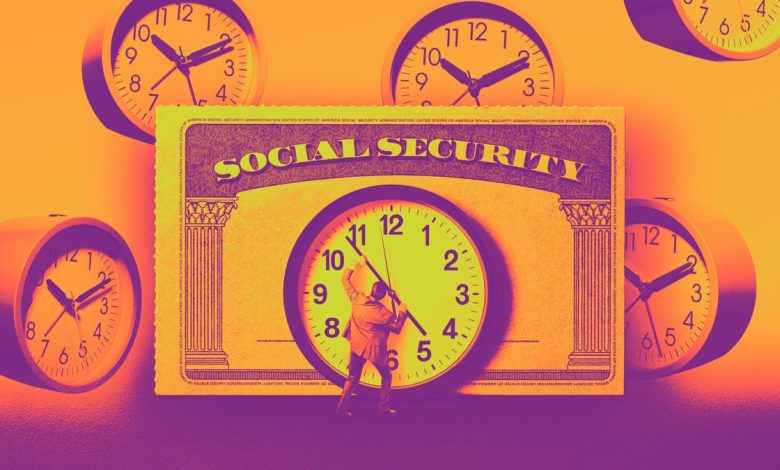Losing Social Security Benefits Can Be Devastating. Here’s How It Happens

Social Security Registration it’s not easy, but once you’ve jumped through all the bureaucratic hoops, you should get started receiving benefit checks each month. After these Social security benefits or Additional security insurance the checks become part of yours monthly budgetyou don’t want to lose them.
If you are actively receiving Social Security benefits, you should be aware of the circumstances that may cause your Social Security checks to be terminated or suspended. Below are the four main actions that can cause you to lose your Social Security benefits and whether or not you can get them back afterward.
For more, Learn how much Social Security is increasing in 2025 and How to Apply for Social Security for Qualifying Children.
If your income changes, you could lose Social Security benefits
While you can still work and receive Social Securityif you start making more than the annual income limit, your benefits may be reduced or stopped entirely in certain situations. The limits change depending on certain factorssuch as whether you are under or over 62 — the minimum retirement age.
Below is an overview of the income limits imposed on specific benefits.
What are the limits for supplementary insurance income?
Eligibility for SSI generally requires that you earn less than $1,971 per month from work. The limit increases for couples, but if you exceed this limit, you may no longer be eligible for SSI. You must be notified of any reduction in benefits or if you become ineligible due to reaching the earnings limit.
Note: For every $2 you earn from work, $1 will be reduced from your SSI payment. Work includes any job you have. You are requires immediate reporting of changes to your monthly income and living situation.
What are the income limits for Social Security Disability?
SSDI recipients have more work to do when it comes to earning money from work. If you get a job while receiving SSDI, you will be able to keep your benefits for up to nine monthswhich the Social Security Administration calls a “work trial period.” For 2024 any month you bring in over $1,110 in gross wages will count toward that nine-month trial period. Note that the months also do not have to be consecutive, but within a five-year period. During these nine months, there is no limit to how much you can earn while maintaining your benefits.
After your trial period of employment, you will enter a 36-month “extended eligibility period.” During this time, if you exceed the EPE earnings limit, you will not be eligible for your SSDI payment for that month. In 2024 the EPE limit is $1,550 per month or $2,590 for blindness disability.
If you continue to earn above the limit after your EPE is up, your SSDI payments will stop completely, but if you can’t keep working, you can restart your benefits.
Resource constraints can also affect your Social Security benefits
In addition to the income limit, to be eligible for SSI, you must fall under what the administration calls “resource limit.” Resources that do the number toward the limit includes cash, bank accounts, stocks, mutual funds, US savings bonds, land, life insurance, personal property, vehicles, and anything else you own that can be turned into money and used for food or shelter , the administration said.
Resources that don’t count include the home you live in and the land it sits on, a vehicle (if you or a member of your household use it for transportation), household goods and personal effects, and combined term life insurance policies. face value of $1,500 or less.
To qualify, the SSI resource limit is $2,000 for an individual and $3,000 for a couple. If you exceed this limit, you need to spend some of your resources to qualify. According to a recent study by the Center on Budget and Policy Prioritiesan average of 70,000 beneficiaries lose their benefits each year because they exceed the limit. Congress proposed legislation it would, for example, raise the limit to $10,000 for individuals and $20,000 for married couples, but so far the changes have not been signed into law.
Divorce can change your Social Security status
Your marital status can and will affect your Social Security benefits, and that includes divorce. Several things would prevent you from collecting your ex-spouse’s benefits:
- You have not been married for 10 years or more.
- If you remarry, you will not be able to receive benefits from your previous marriage. This can change if your current marriage ends through divorce, annulment or the death of your partner.
- You are eligible for benefits and the amount you receive will be more than your ex-spouse’s.
You can lose Social Security if you are arrested or sentenced to prison
If you go to prison, your Social Security benefits may be affected. If you are incarcerated for more than 30 days, the administration can suspend your Social Security and SSI benefits.
Social Security and Social Security Disability while in prison
If your benefits are suspended, you can request that they be reinstated for the following month after you are released from prison. Something to note is that even if your benefits are suspended while you are incarcerated, your spouse or children will continue to receive them as long as they remain eligible.
Supplemental Security Income
While you are in prison, your SSI benefits will be suspended, but payments will resume when you are released, and you will not have to wait until the next month. Your payment amount will be determined by the release date and will only be a partial payment.
If you are incarcerated for more than 12 consecutive months, the administration will terminate your SSI benefits. When you are released, you will need to contact the Social Security Administration and start a new application.
For more, stay tuned Social Security Payment Schedule and on 2025 Medicare Changes You Should Know About.




